Hello!
Sometime last year, I'd read an essay about how non-fiction essays or true stories stop being true as time passes. The person you are who wrote that story changes or the person depicted in that story, the relationships, the thoughts and ideas or dreams showcased in that essay are no longer valid. What happens to such essays and stories? Do they become lesser versions of themselves, time capsules of an older you?
This is something I've been struggling with over the last month. Since December, every month, I've been telling a true story live on stage, may it be in London or Mumbai. Twice, I told a brand new story penned in chronal proximity (aka November 2024). That particular story does not feel untrue. But in other instances, I've pulled from my bag of older stories. Namely, my post pandemic story of going bald. "On a Bad Hair Day."
Given that this story wasn't too old (the story takes place in early 2020), I’d assumed it should be fun to work with again. While telling the story live in London, I made minor changes and tweaks. But for the most part I left it the same.
It worked. The story is beloved by so many people who have come to tell me how seen they feel after hearing it, many who have found nuggets of confidence to go ahead in their lives and so many others who tell me what a great decision going bald was. I agree with all of them, and yet, when I finished telling the story I didn't feel the old satisfaction. Something was missing.
I tell stories on stage for: the conversation, the give and take of energies between a performer and a live audience, the laughter, the silence, the feeling of living a story, transporting everyone in the room to the place in my head, together, showing them what a fool I've been and laughing at the old me, together. It's pure joy.
But in March, this felt slightly diminished.
My wife explained to me that my story required a little more context building. Taking an audience for granted, telling them a story about your life back in India without the context of what Indian society is like does not help them fill in the gaps and understand the depth of my own discomfort, and this in turns leads to a weaker payout at the end. Did that mean the story needed to be edited to work better for this newer set of audiences I find here in London, especially one that may or may not understand the nuances of my Indian heritage?
Yes. If I am going to pull out my old stories from India, I will need to rework the stories.
But there is more to it. These stories were written by a younger me, a younger person but also a younger writer. I am far more confident in my ability to wring words about on a page and while telling the story, the words made me slip into my younger writer self than actually staying true to who I've become.
Which means that I'll have to put in a lot more work to get my stories to a level that brings me satisfaction, that stays true to who I am, now. Which means a lot of re-writing, re-working and re-thinking old truths.
As always, I have my work cut out for me. Why do I keep doing this to myself?
Akshay's Updates:
This month I gave a lecture at my alma mater on one of my favourite topics. Fantasy Fiction!
Also, I hosted Tall Tales' first in-person London workshop, and I have another one coming soon. My next workshop will be on crafting true stories and I’m collaborating with True Story London to bring it to writers in London. See more details here: https://www.eventbrite.co.uk/e/the-art-of-true-stories-a-personal-storytelling-workshop-tickets-1285961909689
Lastly, I told a story with True Story London, an experience that prompted much of the above newsletter.

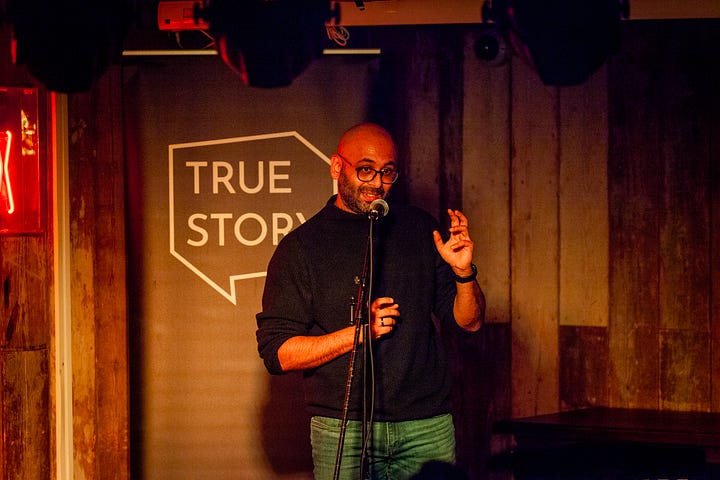
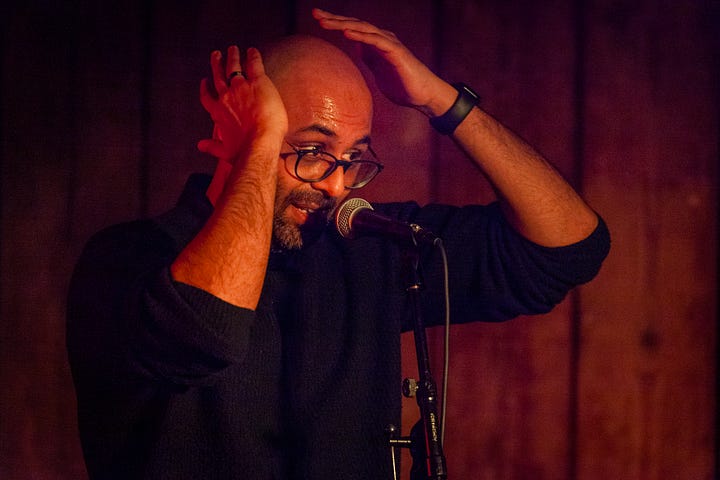
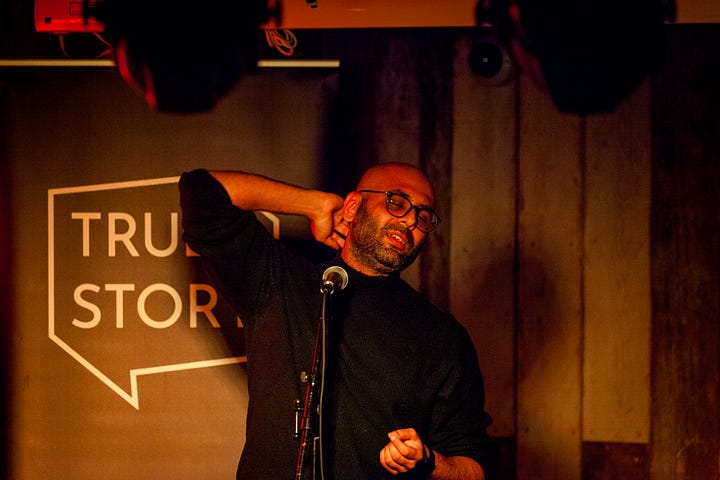
Until next month,
Keep outgrowing your truths,
Akshay


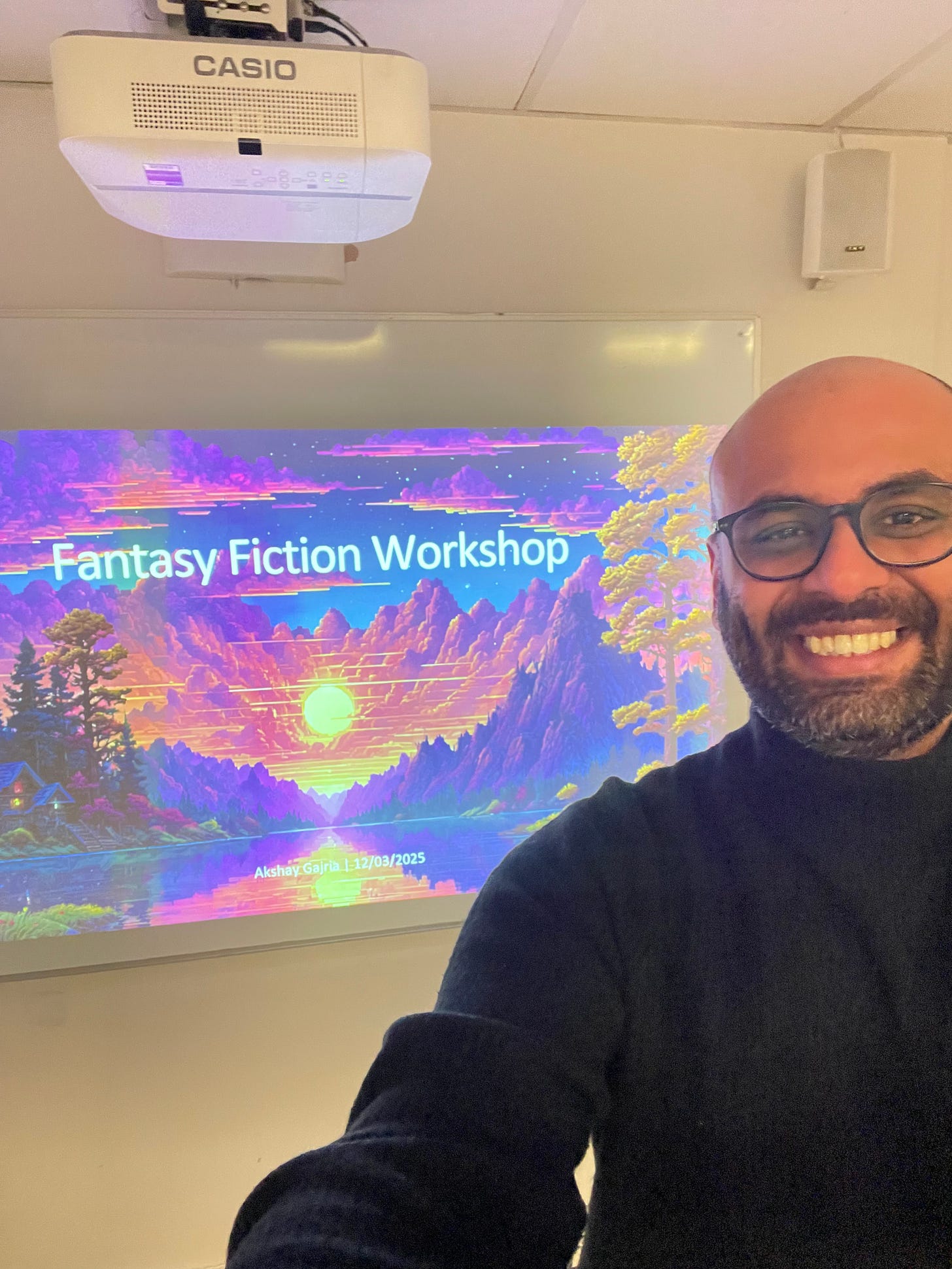
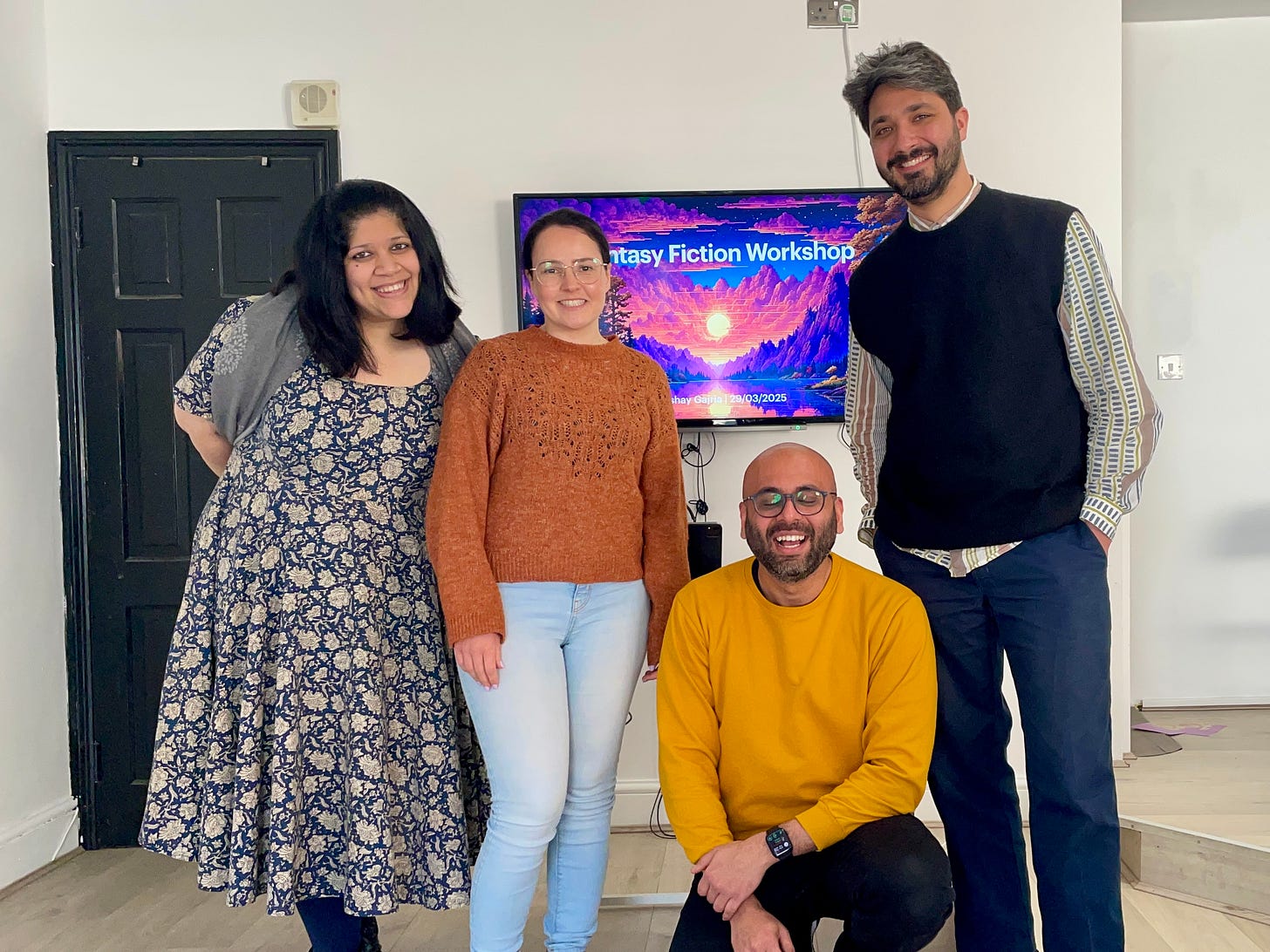
Great reflection. I've been struggling with that too, with a story that worked better when i was younger and more introverted.